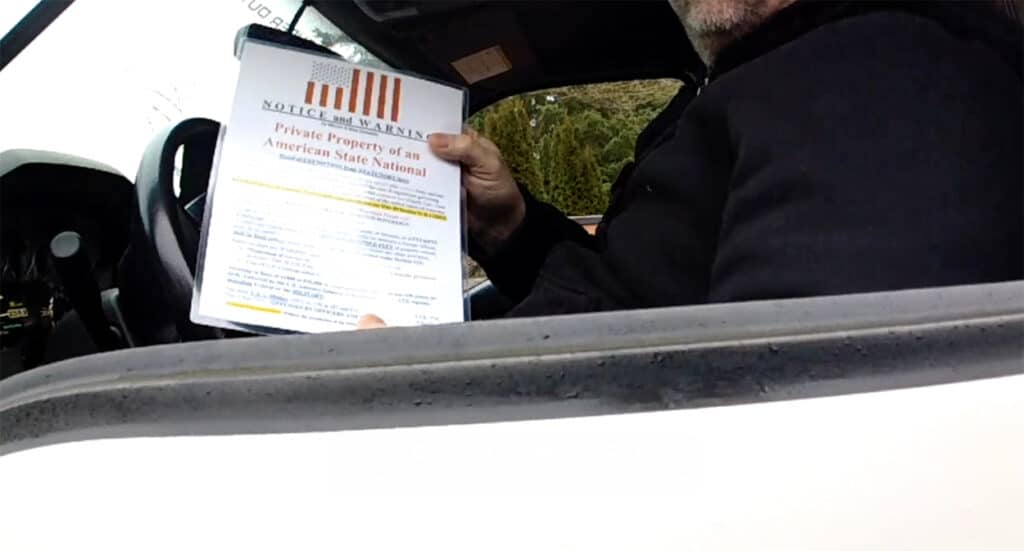Community Government
Traffic stop, license plate-reading camera debate inspired mayoral challenger
Chris Haywood says he decided to run for mayor of Gig Harbor because nobody else chose to challenge incumbent Mary Barber.
A fence, a defeated proposal to install license-plate reading cameras in the city and a traffic stop also played roles in his decision.
Haywood, a 52-year-old HVAC contractor, was the only candidate to run against Barber during the May filing period. The two will appear on the Nov. 4 ballot for voters inside Gig Harbor city limits.
The Pierce County Elections Office will mail ballots to voters on Oct. 17.
Sole challenger
Haywood said he monitored the spring filing week to see if anyone challenged Barber. With an hour left in the filing period, and Barber the only candidate for mayor, he thought to himself: “I guess it’s gonna have to be me.”
“This isn’t something that I ever expected or ever intended or ever planned on doing,” he said of running for office. “It’s not something I ever desired to do.”
But, he said, in his view, city government has done some “pretty dreadful things to the public.”

Chris Haywood
Which is where we get to the fence and the traffic stop.
During an interview in September at a Gig Harbor coffee shop, Haywood said he believes the city has retaliated against him following a conflict over a drainage issue affecting his property on Wollochet Drive and a fence he built there.
In Haywood’s telling, those issues led to the traffic stop in February, which ended with him being taken to the Kitsap County jail after he disputed whether a Gig Harbor Police officer had the right to see his driver’s license and look at the vehicle identification number on his truck.
Drainage issue and fence
Haywood said he built a fence in 2021 because people were urinating on his property. City officials contacted him and said the fence did not comply with regulations, he said. They asked him to remove it.
He said he did so, but not before the city levied fines for the fence. He later tried to get the city to address a drainage issue involving both his property and the public right of way. The city requested that he pay outstanding fines for the fence.
Haywood responded by devising his own “fee schedule” to charge the city for loss of the use of his property due to the drainage issue.
“Now they have a huge bill based on the fee schedule I sent them back in 2021,” Haywood said. “Well, I probably shouldn’t get into too many details about that. But I have strong evidence to support that that was all based on retaliatory action for the fence …. it’s the only hypothesis that makes sense.”
Traffic stop
The “retaliatory action” is a reference to a traffic stop on Feb. 8 on Kimball Drive. He called the traffic stop a “psychological gang-rape on the side of the road.”
A Gig Harbor officer pulled Haywood over that morning because his white full-size pickup lacked a state-issued license plate. A piece of paper that read “Traveler” was in its place.

Chris Haywood placed this in place of a license plate on the back of his pickup. Image obtained by public records request.
Haywood told Gig Harbor Now that he didn’t need a state-issued license plate because he had a “U.S. Department of Transportation registration,” which his research indicates is sufficient “authorization to travel.”
He further disagreed with the officer over what sort of identification he needed to present during the traffic stop. When the officer asked for his “ID,” Haywood handed him a passport.
The officer clarified that he needed to see a state-issued driver’s license. Haywood argued that he was under no legal obligation to comply with that request.
“That’s an illegal request and an illegal stop,” Haywood said.
The state law governing drivers licenses says: “Every licensee shall have his or her driver’s license in his or her immediate possession at all times when operating a motor vehicle and shall display the same upon demand to any police officer.”
Haywood also presented the officer with his passport and a laminated document titled: “Notice and Warning” and “Private Property of an American State National.”
He further refused to move a piece of paper that obscured the truck’s vehicle identification number (VIN). Police officers routinely check the VIN of vehicles that lack license plates, to make sure they have not been reported stolen.

A laminated document that Chris Haywood, now a candidate for mayor, attempted to provide to a Gig Harbor police officer in February. Image taken from Gig Harbor Police Department officer camera.
License plates
Haywood said his truck didn’t have a license plate because he was unable to renew its registration. That happened after he received what he called a “surprise” $4,000 bill for unpaid Tacoma Narrows Bridge tolls.
“I began to research the situation, because I decided this can’t be right. This is when I really started to study the history of license plates,” Haywood said.
That research led him to conclude that he didn’t need a state-issued license plate as long as he had a U.S. Department of Transportation registration.
Washington state law clearly states that “Vehicles must be registered as required by this chapter and must display license plates.”
In the interview and a series of follow-up emails, Haywood argued that his truck: “falls under the legal classification of ‘household goods’ which is defined as a vehicle used exclusively for the benefits of the household, and as a redundancy, under USDOT registration — A vehicle used exclusively for household goods can not be defined as a ‘motor vehicle’ ”
He also made intricate legal arguments that he believes shows that court rulings and constitutional precedents invalidate state laws on drivers licenses and license plates.
That said, Haywood said he plans to eventually renew the registration on his truck. He’s saving money he would otherwise spend on annual registration fees until he has $4,000 to pay the toll bill. Haywood says he couldn’t possibly have racked up that much in tolls.
His family’s other vehicles have valid registrations and license plates, he said.
‘It goes way deep’
Not only does Haywood believe that the traffic stop was retaliation for the fence and drainage issue, he thinks it eventually led to the retirement of Police Chief Kelly Busey.
Busey retired in June after 34 years with the city, including 12 as chief. Busey announced plans to retire about a month after Haywood’ traffic stop.
“The evidence suggests that this was all planned out in advance. It goes way deep,” Haywood said. “Think about the coincidence of the retirement.”
Busey was 60 years old when he retired, seven years past when police officers can retire with full pension. He previously said his retirement was tied to achieving state accreditation for the department, a process that wrapped up in May.
Flock cameras
Those interactions with city government were not solely what inspired Haywood to run for mayor, though. A proposal to install license plate-reading cameras in the city also was an impetus for Haywood’s first political campaign.
Busey proposed using a grant from the Washington Auto Theft Prevention Authority to pay for the cameras, operated by Flock Group of Atlanta, and one year of service. The city council voted 5-2 against the proposal.
Haywood said he attended a packed meeting at which the council discussed the cameras, thinking he would be one of the few voices against the proposal. What he saw made him “re-evaluate my position regarding government.”
“I realized that everyone there was on the same channel I was. I thought I was the only one,” he said.
Public records requests
Haywood has become a persistent requester of public records. The city’s online log indicates he has filed 77 formal records requests so far in 2025.
Many pertain to the February traffic stop. Several reference the term “Sovereign Citizen,” a label the officer in the traffic stop applied to Haywood.
“Considering what’s happened to me … I think it’s very kind. I’m gonna try to find the truth,” Haywood said.
One request references ghpdcriminals.com, a website detailing Haywood’s traffic stop and echoing some of his claims.
Asked if he operates ghpdcriminals.com, Haywood said he “can’t comment on that right now.”
“I do know about it. I am helpful with the investigatory aspect of it. That’s about as much as I can say about that right now.”
GoDaddy shows that Haywood registered that site.
Working with police
Despite the recent issues, Haywood described himself as a supporter of law enforcement. He said he would have no problem working with the police department if he is elected.
“I have an appreciation for law enforcement as long as it’s properly applied and not used as a weapon of punishment or attack or abuse,” he said. “I don’t have a problem with police at all.”
“In my opinion, people deserve a much higher-quality and representative government. … My running is principle-based. I just want the government to be as it was designed to be. An agency of service to the people,” Haywood said.
